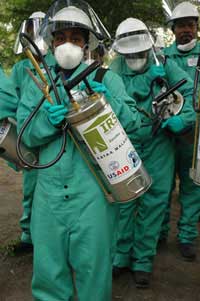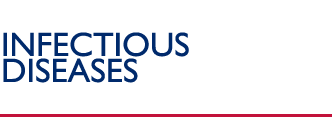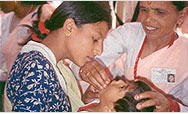Indoor Residual Spraying (IRS)
Indoor residual spraying (IRS) is the application of small amounts of insecticide to the interior walls of houses to kill or sometimes repel malaria-transmitting mosquitoes. IRS is a highly effective, proven malaria prevention strategy that saves lives.
The Use of DDT
 |
| The President’s Malaria Initiative launched an indoor residual spraying campaign in Zanzibar, impacting 210,000 homes and helping over 1 million people. Source: USAID/Tanzania |
The use of the insecticide DDT for IRS is very different from the massive agricultural applications that led to the ban of DDT in the United States and other countries, both in terms of the amounts of insecticide used and the potential risks to the environment. If used correctly for this purpose, it poses no known risk to human health. Malaria, on the other hand, kills more than 1 million people each year, the vast majority of whom are African children.
USAID adheres to strict environmental guidelines, approval processes, and procedures for the use of DDT and all other World Health Organization (WHO)-approved insecticides in its malaria control programs. We work with WHO and national partners to build country-level capacity to ensure the safe and judicious use of all insecticides, including DDT, used in malaria control programs.
DDT is one of the WHO-approved insecticides for IRS. Its use for IRS to prevent malaria is an allowable exception under the Stockholm Convention – also known as the Persistent Organic Pollutants Treaty or POPs Treaty – when used in accordance with WHO guidelines and when safe, effective, and affordable alternatives are not available. The Stockholm Convention aims to eventually end the use of all POPs, including DDT.
DDT is more effective and less expensive than many other insecticides in many situations; as a consequence it is a very “competitive” choice for IRS programs. Interest in IRS, with DDT specifically, has increased in WHO, national control programs, donors, and other partners, with recent examples of successful applications, particularly in southern Africa.
The determination of which of the WHO-approved insecticides to use for USAID’s IRS programs is made in coordination with the host-country malaria control program, with the primary objective of preventing as many malaria infections and deaths as possible in the most efficient, cost-effective, and sustainable way, and in accordance with national policies and capacities.
USAID has never had a “policy” as such either “for” or “against” DDT for IRS. The real change in the past two years has been a new interest and emphasis on the use of IRS in general – with DDT or any other insecticide – as an effective malaria prevention strategy in tropical Africa. For example, in fiscal year 2005 USAID supported less than $1 million of IRS in Africa, with programs utilizing insecticides purchased by the host government or another donor. For fiscal year 2006, in the President’s Malaria Initiative (PMI) and in other bilateral programs, USAID will support more than $20 million in IRS programs in Africa, including the direct purchase of insecticides. This dramatic increase in the scale of our IRS programs overall is the greatest factor in DDT’s recent prominence in USAID programs.
Plans to Support IRS
In fiscal year (FY) 2005 USAID provided approximately $1 million support to IRS in Africa, in most cases utilizing insecticides purchased by the host government or another donor.
For FY 2006, USAID is providing more than $20 million in support of IRS activities in eight African countries, including the direct purchase of insecticides, spraying equipment, protective gear, environmental assessments, training of spray personnel and information, education, and communication for local residents.
USAID is currently supporting IRS with DDT in Zambia.
This year, pending completion and satisfactory results of all necessary entomological and environmental assessments, USAID plans to support IRS with DDT in Ethiopia and Mozambique (including purchase of the insecticide); and also in Madagascar (using DDT purchased by another donor).
With FY 2006 funding, USAID is supporting IRS with insecticides other than DDT in Kenya, Uganda, Tanzania, and Angola.
In FY 2007 the PMI will add four new countries, Malawi, Senegal, Rwanda, and Mozambique. It is expected that funding for IRS will be part of the malaria control activities supported by the PMI in all of these countries.
Related Links
|


